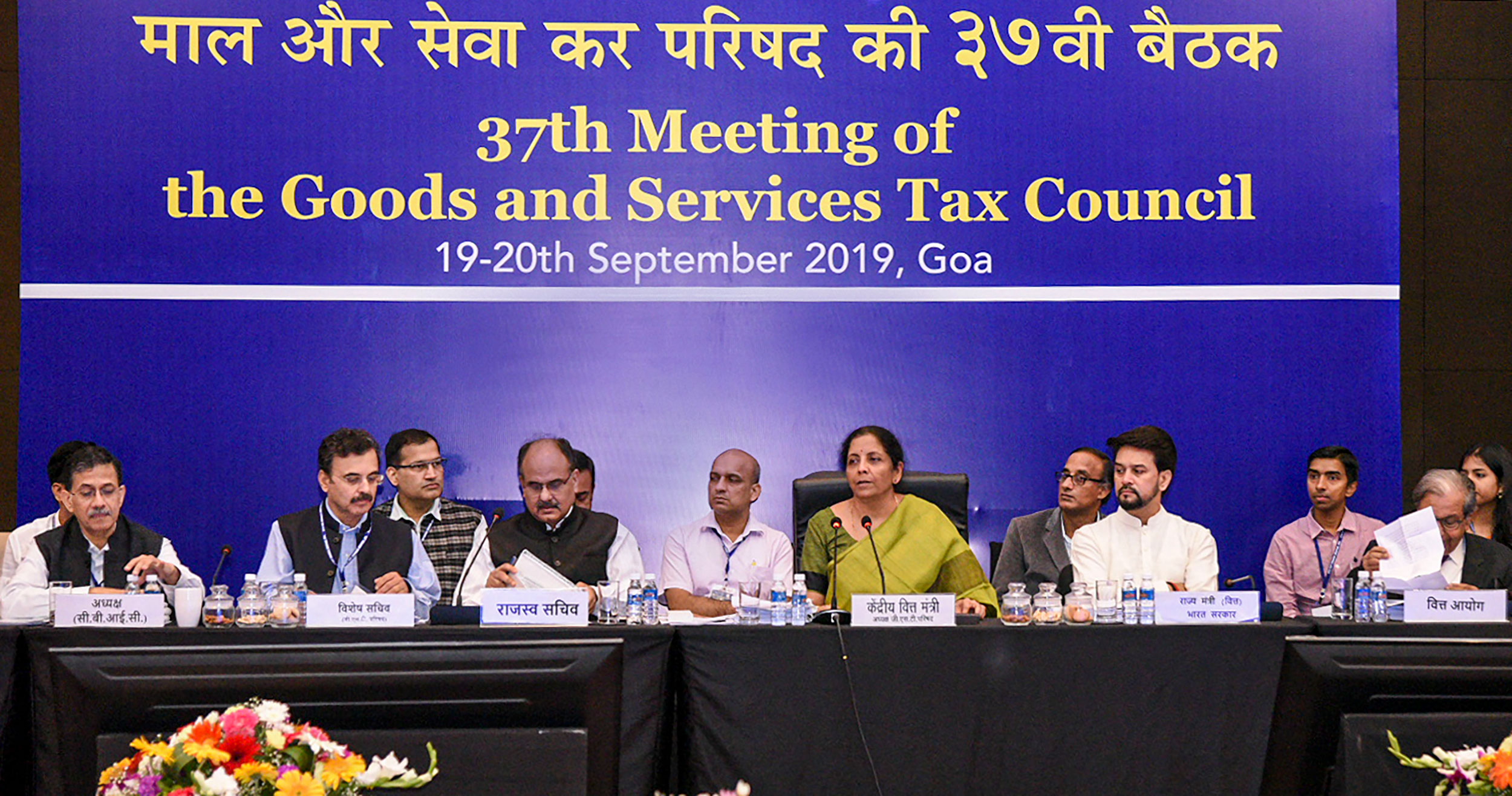The GST Council may consider raising rates to not only increase collections but also meet the compensation needs of states.
The council at its meeting next week could consider the recommendations of a panel of senior tax officers.
The meeting on December 18 will examine various measures to boost revenue collection, including the review of the tax structure, compensation cess rates and exempted items.
Sources said the panel has suggested that the 5 per cent GST rate could be hiked up to 8 per cent and the 12 per cent rate to 18 per cent.
As of now, the GST has four slabs of 5 per cent, 12 per cent, 18 per cent and 28 per cent. The 5 per cent slab includes essential commodities such as food items, footwear and basic clothing.
Officials said there have been suggestions to raise the rates to 18 per cent from 12 per cent on items such as mobile phones, state-run lotteries, expensive and luxury hotel accommodation, business and first-class air travel and expensive paintings.
However, analysts said an increase in GST rates could create confusion. This could further fan the inflationary pressure on the economy.
According to government data, the 5 per cent slab contributes to nearly 5 per cent of GST collection.
The government’s monthly GST collection target is about Rs 1.18 lakh crore.
The panel has also highlighted the fact that proceeds from the cess levied on items such as tobacco and automobiles will not be sufficient to compensate states for their revenue shortfall.
Compensation cess is levied on luxury and sin goods, and the proceeds are used to compensate states for any loss they incur within the first five years of GST implementation. However, some states have complained that the delay in receiving the cess was affecting their finances.
Sources said the council has asked states for specific suggestions.
The government had formed a committee of officers in October this year to suggest measures to boost collections and make businesses comply voluntarily.
The committee has commissioners from the state GST council of Maharashtra, Tamil Nadu, Uttar Pradesh, Bengal and Punjab along with the joint secretary and executive vice-president of the GST Council.











